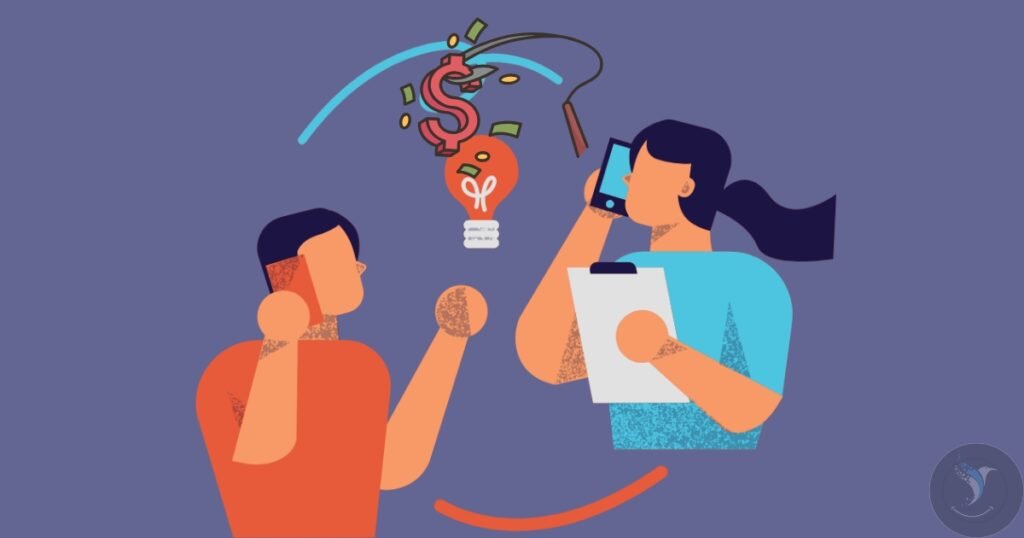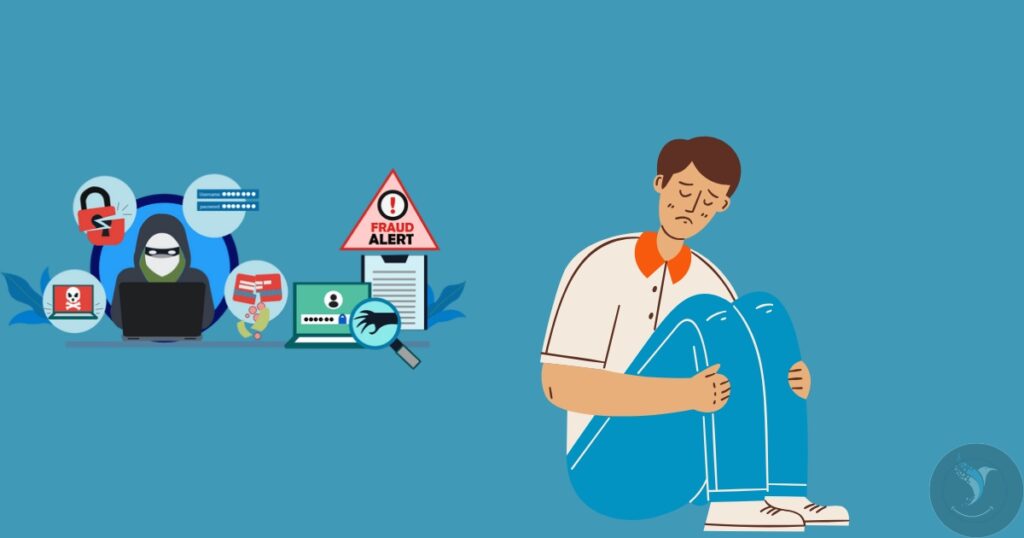
Finance fraud detection
In 2022, scammers stole nearly $8.8 billion from Americans, according to the Federal Trade Commission (FTC).
Consumers reported losing more money to investment scams—more than $4.6 billion—than any other category in 2023. That amount represents a 21% increase over 2022. The second highest reported loss amount came from imposter scams, with losses of nearly $2.7 billion reported.
There are umpteen fake loan apps which provide loans to users with wrong intentions. These apps design their services to trap borrowers by offering them high interest rates and deceitful descriptions. Such cases of scams have risen recently due to an upward jump in digital lending.
In the first quarter of 2023, California ranked first in terms of total fraud reports, with a count of roughly 47,000. Relative to population, it came in 18th place, with 244 reports for every 100,000 residents.
The most common finance fraud in the UK are payment diversion fraud where criminals target a specific individual, impersonate others, create or amend invoices and divert payments to criminal-controlled bank accounts. , investment fraud.
Types of Finance Fraud
Account takeover: fraudsters gain access to legitimate accounts using stolen credentials or social engineering tactics, draining funds or conducting unauthorized transactions.
Payment fraud: Fake transactions disguise themselves as legitimate purchases, often through stolen credit card information or forged checks.
Investment fraud: Ponzi schemes, pump-and-dump schemes, and other scams deceive investors into parting with their money, often promising unrealistic returns.
Money laundering: Illegally obtained funds are disguised as legitimate income through a complex web of transactions, hiding their criminal origin.
Identity theft: Using stolen personal information, fraudsters open new accounts, obtain credit cards, or commit other financial crimes in the victim’s name.
Online platforms and mobile apps have become prime targets, leading to increased phishing scams, malware attacks, and fake mobile banking apps.
Fraudsters manipulate victims through emotional appeals, threats, or impersonation of legitimate institutions.
Fake KYC Scams: Fraudsters request sensitive information like bank details and Aadhaar cards under the guise of KYC verification, then use this information for identity theft or financial crimes.
Ponzi Schemes: Bogus investment schemes promising high returns and easy loans, using new investor funds to pay earlier ones until the scheme collapses, leaving many empty-handed.Companies engaged in Ponzi schemes focus all of their energies into attracting new clients to make investments.
Aggressive and threatening calls, impersonating debt collectors, aiming to coerce payments for non-existent debts. They exploit fear and confusion to extract money.
Using AI-generated video and audio to impersonate individuals and trick victims into sending money or revealing sensitive information.
Exploitative apps offering quick loans with minimal documentation, often charging exorbitant interest rates and hidden fees. Aggressive recovery tactics like public shaming and threats are employed.
Fake Calls from your bank : In these fake bank messages, the scammer will sometimes offer some great deal in exchange for an upfront fee, ask you to confirm your bank info for their records or report “suspicious activity” that you need to follow up on.They’re lying.
Important Points
- Beaware of promises that seem too good to be true.
- Never pay upfront fees or share sensitive information before loan approval.
- Read and understand all loan terms and conditions before signing.
- Report any suspicious activity to the authorities.
How to Identity Scammer
- Unrealistic offers: Beware of promises of quick money, guaranteed high returns, or easy loan approvals, especially if they come through unsolicited emails, calls, or texts. Legitimate financial institutions rarely use such tactics.
- Requests for sensitive information: Never share your Social Security number, bank account details, or passwords with anyone over email, phone, or text. Legitimate institutions already have this information on file.
- Suspicious communication: Watch out for poorly written messages, grammatical errors, and vague information. Be wary of emails or calls claiming to be from your bank or other financial institution unless you initiated the contact and verified their identity.
- Unusual account activity: Monitor your bank statements and credit reports regularly for any unauthorized transactions or significant changes you didn’t initiate.
- High pressure tactics: Scammers often try to create a sense of urgency to rush you into a decision. Don’t feel pressured to make an immediate decision, especially when it involves sharing personal or financial information.
How to Prevent frauds

- Choose reputable lenders: Only borrow from registered and licensed financial institutions. Research their reputation and customer reviews before proceeding.
- Don’t click on suspicious links or attachments: Phishing emails often contain these to steal your information. Verify the sender’s identity before responding or clicking anything.
- Monitor your accounts: Regularly check your bank statements, credit card reports, and other financial accounts for unauthorized activity. Many institutions offer mobile apps and alerts to help you stay on top of things.
- Secure your devices and network: Use strong passwords for your devices and Wi-Fi network, and keep your software and operating systems updated with the latest security patches. Avoid using public Wi-Fi for sensitive transactions.
- Be wary of investment or credit card offers that sound too good to be true. Do your research before investing or applying for credit with any unfamiliar company.
- Fraudsters may try to gain your trust and personal information through phone calls, texts, or even in person. Never share sensitive information like passwords, PINs, or social security numbers unless you’re absolutely sure who you’re dealing with
- If you lose your debit or credit card, or suspect unauthorized activity, freeze your accounts immediately to prevent further damage.
- Consider Filing a complaint with the Federal Trade Commission (FTC)
What to do if someone has already been defrauded?

If someone has already been defrauded, it’s important to act quickly and decisively to minimize the damage and potentially recover lost funds.
- Take Immediate Action If possible, try to prevent further losses. This might involve contacting the bank or financial institution involved to freeze accounts, cancel cards, or change passwords.Contact your bank: Inform your bank about the situation, and if the payment is recent, they may freeze your funds before they reach the criminals. Change passwords: If you’ve logged into accounts during the scam or provided passwords, change them immediately.
- Collect all documentation related to the fraud, including emails, texts, phone records, financial statements, and any communication with the scammer.
- File a report with the authorities. In the USA, you can report to the Federal Trade Commission (FTC) online at Report https://reportfraud.ftc.gov/ or by phone at 1-877-FTC-HELP (382-4357). In India, you can report to the National Cyber Crime Reporting Portal (cybercrime.gov.in) or your local police station.
Victim Connect Resource Center (855-484-2846), U.S. Senate’s Committee on Aging Fraud Hotline (855-303-9470), Securities Helpline for Seniors (844-574-3577), and Identity Theft Resource Center (888-400-5530).
reported by calling the National Helpline number 1930 Alternatively, you can file an online fraud complaint at https://cybercrime.gov.in/. There is also an option of calling them on the dedicated cybercrime hotline number –155260 on a business day from 9:00 a.m. to 6:00 p.m.
Report fraud to Action Fraud (or Police Scotland) and your bank if you are a victim. Report fraud or cyber-crime any time at actionfraud.police.uk or call 0300 123 2040. In Scotland, report to Police Scotland by calling 101.
Contact from Credit bureaus?
Consumer credit reporting agencies (also called credit bureaus or CRAs) collect and subsequently provide information to firms about consumer credit and payment behavior, called consumer reports or credit reports.
There are three main credit bureaus: Experian, Equifax and TransUnion.
Equifax: 1-800-685-1111; Equifax.com/personal/credit-report-services.
Experian: 1-888-397-3742; Experian.com/help.
TransUnion: 1-888-909-8872; TransUnion.com/credit-help.
CIBIL : 022-61404300
In usa three main credit bureaus: Experian, Equifax and TransUnion.
in India: CIBIL, CRIF High Mark , Experian , Equifax
In Uk : Equifax , Experian , Transunion
Different Credit bureaus in different Countries but the three Main credit bureaus in all Countries are Equifax , Experian , Transunion you can contact credit bureaus and report .
Credit Bureaus: They focus on your credit report, which tracks your borrowing history and creditworthiness. Scammers often exploit your credit report by opening accounts in your name, damaging your score.
Credit bureaus help detect fraud by identifying inconsistencies in credit information. They monitor credit activity and alert lenders and borrowers if there is any suspicious activity.
FAQ?
Q: What are the 3 major credit bureaus?
Ans. The three major credit bureaus are Equifax®, Experian® and TransUnion®. Credit bureaus are different from credit-scoring companies, such as VantageScore® and FICO®. Credit reports contain information about people’s identity, credit history and credit activity as well as information from public records.
Q: What does credit bureau mean?
Ans. A credit bureau, also known in the U.S. as a credit reporting agency, is an organization that collects and researches individual credit information and sells it to creditors for a fee, so they can make decisions about extending credit or granting loans.
Q: What does FICO stand for?
Ans. FICO stands for the Fair Isaac Corporation. FICO was a pioneer in developing a method for calculating credit scores based on information collected by credit reporting agencies.
Q: What are the three biggest credit rating agencies in the UK?
Ans. There are three main credit reference agencies – Experian, Equifax and TransUnion. You should check the information held with all of these agencies. This is because the details held by individual agencies may differ.
Q: What is meant by financial fraud?
Ans. when someone deprives you of your money or otherwise harms your financial health through misleading, deceptive, or other illegal practices. This can be done through a variety of methods such as identity theft or investment fraud.
Q: Do banks refund scammed money?
Ans. Federal law says banks have to reimburse you for unauthorized transactions but they don’t for authorized ones. So, if you voluntarily give someone money, that’s on you.
Q: Can banks reverse stolen money?
Ans. The bank must provide a provisional credit to your account within 10 days, and it has up to 45 days to complete the investigation. If the bank determines that the charge was fraudulent, it must refund your money and remove the charge from your account.
Q: How much does financial fraud cost the UK?
Ans. Fraud is costing the UK more than £200 billion each year, according to a new report. As the economy struggles with the cost of living crisis, more than £157 billion in fraud impacted businesses, while a further £8 billion targeted individuals.
Q: What is the fraud report for UK Finance h1 2023?
Ans. The latest figures released by UK Finance highlight that fraud fell in the first six months of 2023 with a total of £580 million being stolen by criminals. This is a decrease of two per cent compared with the same period in 2022. The advanced security systems used by banks also prevented £651 million from being stolen.
Q: Is financial fraud increasing?
Ans. 70% of financial institutions report that overall fraud rates have increased over the past year, an 11% increase from 2022. In total, over four-million attempts of fraud and financial crime were recorded. Of these, almost one in four resulted in successful attacks.
Q: What is the data on financial fraud in India?
Ans. In the year 2023, the Reserve Bank of India (RBI) documented bank frauds exceeding 3,500 cr Indian rupees. This marked a decline from the substantial figure of over 1.3 trillion rupees reported in 2021. The observed decrease reflects a noteworthy shift in the trend of these fraudulent activities.
